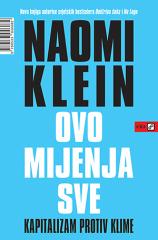
Kraj siromaštva: Ekonomske mogućnosti našeg doba
U knjizi ekonomist Jeffrey Sachs predstavlja optimistički plan za uklanjanje ekstremnog siromaštva do 2025. godine. Tvrdi da je to izvedivo uz političku volju, jer svjetsko bogatstvo raste, a siromaštvo nije sudbina, već rezultat neefikasnih sustava.
Sachs uvodi "kliničku ekonomiju" – sustavan pristup poput liječenja bolesti: dijagnoza problema, recept (intervencije) i praćenje. Fokusira se na najsiromašnije zemlje Afrike, Azije i Latinske Amerike, gdje milijarde ljudi žive s manje od 1 dolara dnevno. Ključni uzroci: geografske prepreke (tropske bolesti, suše), nedostatak investicija u infrastrukturu, obrazovanje i zdravstvo, te politička nestabilnost.
Predlaže trostruki plan: (1) Urgentna pomoć za "velike borbene" – mreže za prevenciju malarije, AIDS-a, distribucija sjemena i gnojiva za poljoprivredu; (2) Dugoročni razvoj – izgradnja cesta, škola, klinika; (3) Globalna suradnja – povećanje potpore bogatih zemalja na 0,7% BDP-a za razvojnu pomoć, otpis duga i trgovinska pravila bez diskriminacije.
Knjiga obiluje slučajevima: Sachsov uspjeh u Boliviji (1985., hiperinflacija zaustavljena), Poljskoj (šok terapija) i Zambiji (malarija kontrolirana). Kritizira Zapad zbog neefikasne pomoći i poziva na podršku Milenijskim razvojnim ciljevima UN-a. Zaključuje da siromaštvo nije neizbježno – s 175 milijardi dolara godišnje (manje od 1% globalnog BDP-a) možemo spasiti živote, spriječiti ratove i potaknuti rast.
Sachsova vizija inspirira, ali kritičari upozoravaju na rizike ovisnosti o pomoći. Ipak, knjiga ostaje manifest humanizma u ekonomiji.
Jedan primjerak je u ponudi





